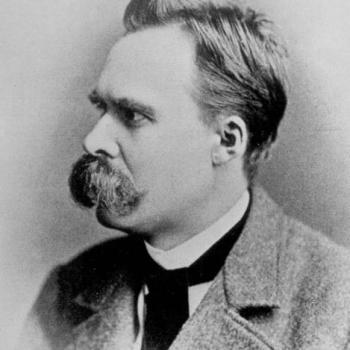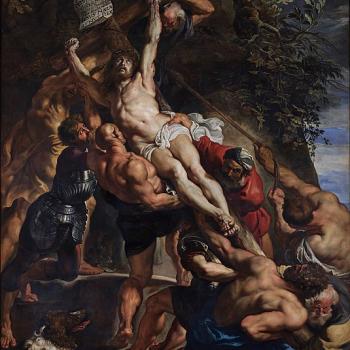The Library of America, known for its excellent editions of American literary classics, has added a theologian to its list, Reinhold Niebuhr, whose “Christian realism” taught his fellow mainline Protestants about the reality of sin, which must temper the promises of every “social gospel.”
After the jump, an excerpt from Barton Swaim’s Wall Street Journal review of his Major Works in Religion and Politics, giving Niebuhr’s reasoning and quotations from his writing, showing why utopias can’t happen and why governments must be limited.
From Barton Swaim, Sifting the Wheat From the Chaff – WSJ:
In his most famous work, “Moral Man and Immoral Society” (1932)—the book went through many editions and is still a common title in secondhand bookshops—he contended that, while individuals are capable of moral good in small communities, large “collectives” (governments, societies) are essentially and inevitably immoral. Man, he argued, is both too self-serving and too limited in his imagination to treat people outside his immediate experience with the kind of care and respect they deserve. So while man’s tendency to pursue his own interests at the expense of everyone else makes government necessary, man’s wickedness and limitations make government brutal and dangerous. “There are definite limits of moral goodwill and social intelligence,” Niebuhr writes, “beyond which even the most vital religion and the most astute educational programme will not carry a social group, whatever may be possible for individuals in an intimate society.”
A government’s aim, therefore, must not be “the creation of an ideal society in which there will be uncoerced and perfect peace and justice, but a society in which there will be enough justice, and in which coercion will be sufficiently non-violent to prevent [man’s] common enterprise from issuing into complete disaster.” Hence the term commonly associated with Niebuhr (though used by him only rarely), Christian realism.
Niebuhr’s contention in “Moral Man and Immoral Society”—the contention, that is, that people tend to do bad things not because they are badly educated or disadvantaged but because they are people, and that modern enlightened liberalism must find a way to accommodate itself to this unhappy reality—is at the heart of all his best writing.
















